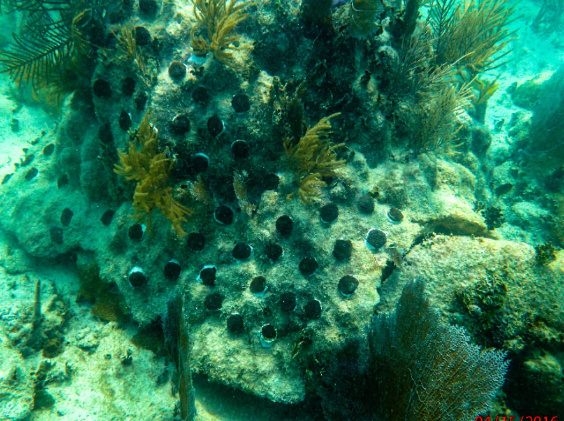The new hope for restoring coral reefs
Coral Reef Reproduction
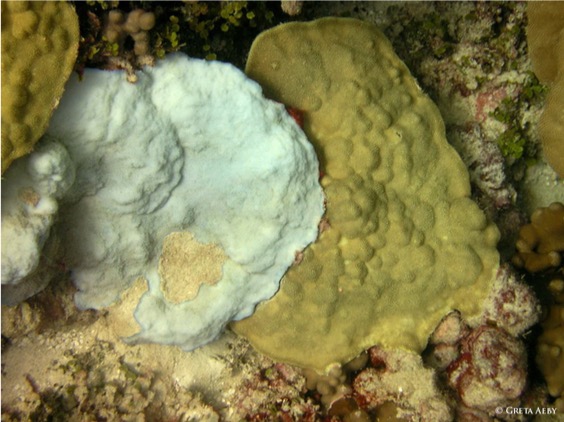
Step 1: Selective breeding of Resilient Corals
Selective breeding is the intentional breeding of organisms with a desirable trait to produce offspring with improved traits. During severe bleaching events some reefs lose 50% to 95% of their coral. For selective breeding, the resilient corals that survive are identified and breed. Selective breeding resilient corals with other resilient corals of the same species increases the gene pool of corals that can withstand stressors caused by climate change and ocean acidification. “What doesn’t kill you makes you stronger.”
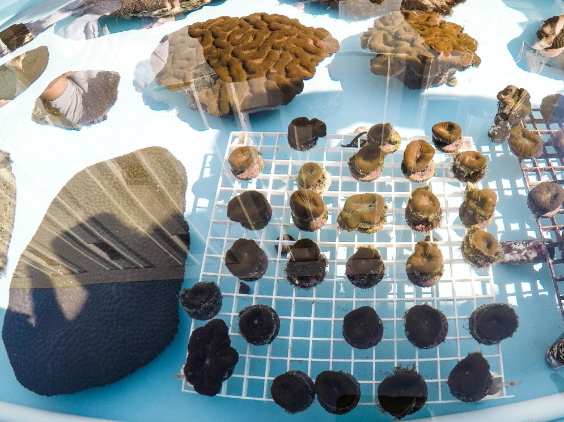
Step 2: Growing new coral recruits in land based or in situ nursery
Growing coral larvae is a slow process. It takes approximately 3 1/2 years to grow a massive coral species from a larvae to the size of a quarter.
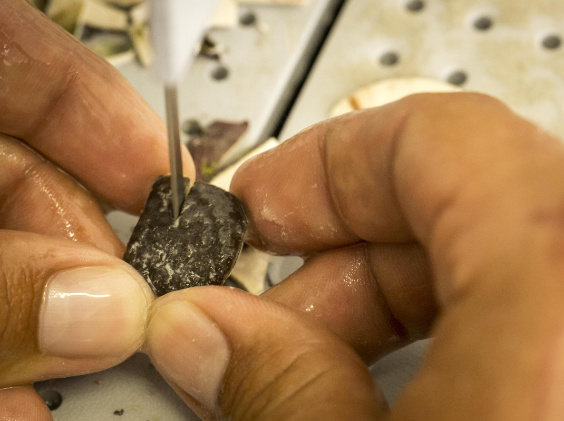
Step 3: Microfragmenting & Regrowth
Micro-fragmentation technology accelerates the growth rate of coral so that it is now possible to grow a coral the size of a quarter in 2 to 3 months, instead of 3 ½ years.
Coral Reproduction Timeline
The micro-fragmentation coral regrowth method is 10 to 20 times more productive than old coral fragmenting methods, due to smaller fragments and accelerated coral growth. The following is a timeline of coral growth via micro-fragmentation:
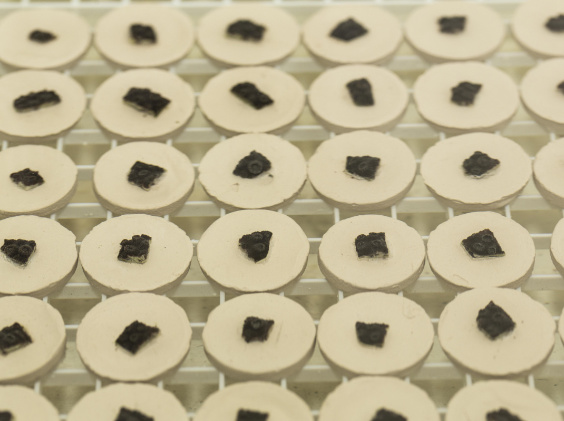
Freshly Micro-Fragmented Coral
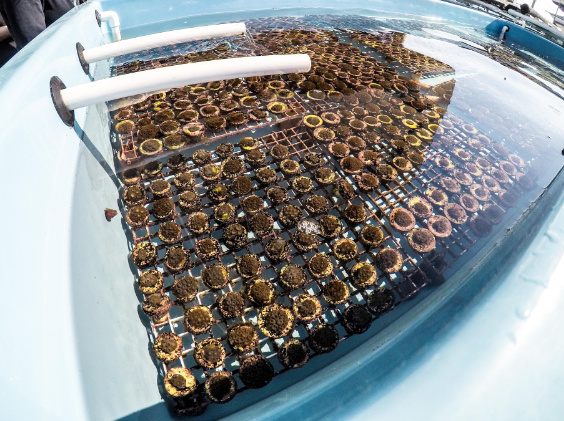
Growing Micro-Fragmented Coral
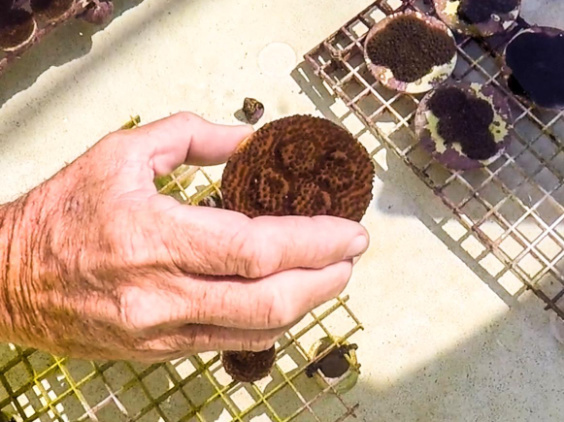
Micro-Fragmented Coral Fusion
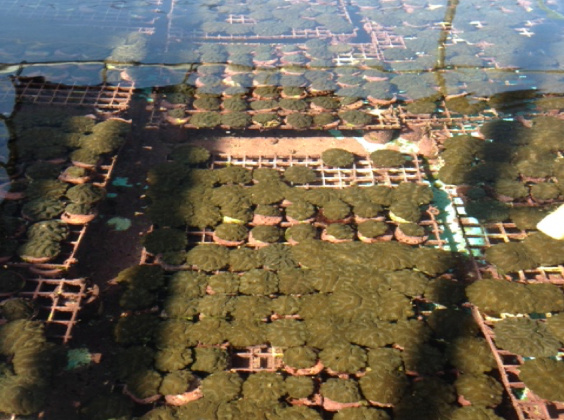
Micro-Fragmented Coral Fusion
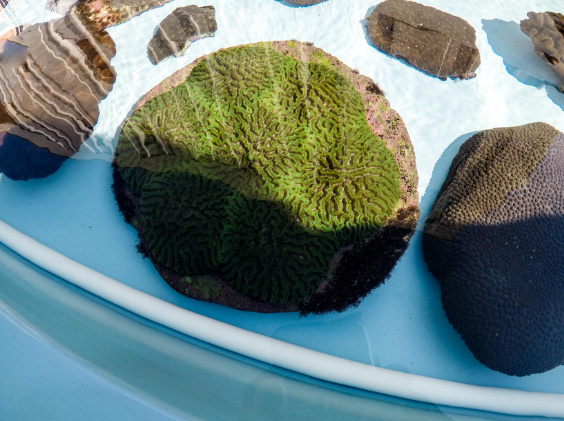
Micro-Fragmented Coral Fusion
